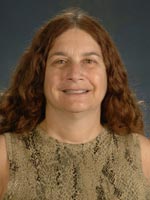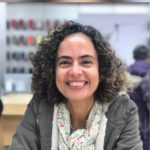Thursday, June 3
Noon-1:15pm EST
Title: Exploring Young Children’s Ecosocial Worlds through the Concept of Perezvhanie
Abstract: This lunch time discussion shares qualitative studies that are part of an edited book by Katz & Wilson, Understanding the worlds of young children which explores the importance of children’s earliest years within the context of their families and communities and connecting those years with their formal education. Development is viewed through a child’s perezhivanie, a concept by Vygotsky that expresses the unity of the individual’s biological and cultural development. Children are social beings from birth who acquire and make meanings of their world through their interactions with their families, friends, childcare providers, religious groups, and other community members. These interactions encompass the way children use language within children’s ecosocial (physical and social worlds) where development occurs. These studies demonstrate how these ecosocial worlds support each other or collide to impact children’s literacy development.
Facilitators:
Dr. Laurie Katz
Professor, Early Childhood Education
College of Education and Human Ecology
The Ohio State University
Dr. Vanessa Neves
Associate Professor, Early Childhood Education
Faculty of Education
Federal University of Minas Gerais

Biographies:
Laurie Katz, PhD (she/her) is a Professor in Early Childhood Education in the Department of Teaching and Learning, College of Education and Human Ecology, at The Ohio State University. She received her doctorate from University of Massachusetts-Amherst in 1992 with a specialization in Early Childhood Education/ Early Childhood Special Education and a Masters in Social Work from the University of Wisconsin-MadisonHer research, teaching and service have focused on teacher preparation of early childhood educators, inclusion issues, relationships between families, communities and schools, and narrative styles and structures of young children. One of the key issues that she has been addressing in teacher education programs is how early childhood curriculum and instruction can be conceptualized to incorporate the broad diversity of children (birth-8 years of age) including children from linguistic minority communities and children with disabilities. A related recent publication is a co-edited book, Scott, J., Straker, D. & Katz, L. (Eds.) (2009). Affirming Students’ Right to their Own Language: Bridging Educational Policies to Language/Language Arts Teaching Practices (2009) New York, NY: Routledge/ Urbana, IL: NCTE. Her latest grants include: a) Co-Principal Investigator and Co-author, The Ohio State University project ASPIRE Teacher Quality Partnership Transition to Teaching Project (2009-2014). Office of Innovation and School Improvement, $12.9 million, US DOE Grant; and, b) Co-Principal Investigator and Co-author, Professional Development Module for Preschool English Language Learners. Funded by Ohio Department of Education for Even Start Programs. $50,000 for 2008-2010.Laurie Katz is one of the co-editors of Language Arts that publishes original contributions on all facets of language arts learning and teaching focusing primarily on issues concerning children from preschool-middle school years. Previously, she co-edited Tennessee’s Children, a journal of the Tennessee Association for the Education of Young Children. She has been the National Council of Teachers of English (NCTE) Director of the Commission of Language from 2004-2007. From 2009-2010 she held the position of council chair of the College of Education and Human Ecology.
—

Vanessa Ferraz Almeida Neves, PhD (she/her) is an Associate Professor at Universidade Federal de Minas Gerais in Early Childhood Education. Her research, teaching and service have focused on Early Childhood and Elementary Education drawing on Cultural Historical Psychology, Childhood Studies and Ethnography in Education. She is currently engaged in researching a group of infants throughout its six-year trajectory in a Brazilian Early Childhood Education Center.

